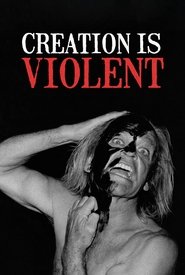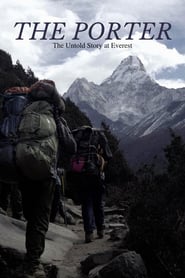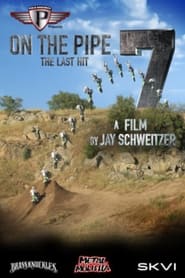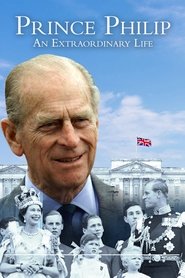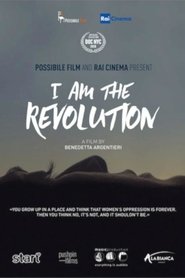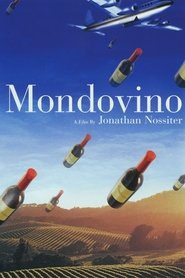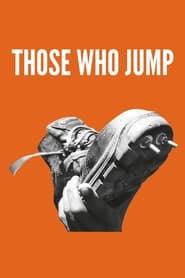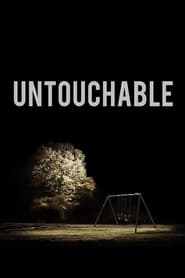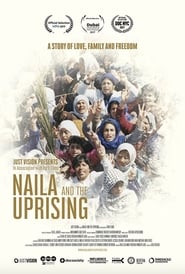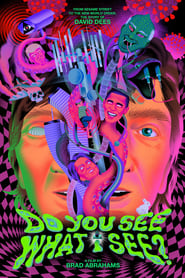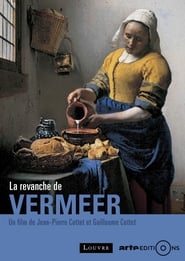Popular Documentary Movies on Free Services - Page 351
-
Creation is Violent: Anecdotes on Kinski's Final Years
2021
star 3.5Interviews with associates of Klaus Kinski in his final years offer anecdotal evidence of his fragile state of mind and deteriorating work ethic. -
The Porter: The Untold Story at Everest
2020
star 6.4A young privileged American "Nathaniel J. Menninger" attempts to make history at Everest by becoming a Himalaya Porter. But in his journey to succeed, experiences a harrowing reality instead. This is an inside look at the darker side of Everest. At the strength, pride and pain of those whose support it. And at just how hard it is for a naive foreigner to attempt the same. This is The Porter. -
Straight Up: Kentucky Bourbon
2018
star 6.8Kentucky's rise to undisputed Bourbon Capital of the world is a rich, detailed, and innovative story that displays how the state has continued to play an integral role in raising the level of global whiskey making to unprecedented heights. From sour mash and charred barrels to the name Bourbon itself, Kentucky-based producers lead the world in both production and innovation. As the stills continue to pump out whiskey and the barrels are filled and stored, the people that make up Kentucky's bourbon empire tell of their state's rise to bourbon dominance. -
On The Pipe 7: The Last Hit
2017
Join Director Jay Schweitzer on a historical journey across the globe that documents the most progressive dirt bike riding of all time. -
Prince Philip: An Extraordinary Life
2021
Born in Corfu in 1921, Prince Philip has lived on the national stage through Britain’s move from Empire to Commonwealth amid all the extraordinary political and social changes that have taken place since he married Princess Elizabeth in 1947. -
I Am the Revolution
2018
I Am the Revolution
2018
The inspiring story of three women risking their lives to incite political, activist, and armed uprisings in Afghanistan, Syria, and Iraq. -
Mondovino
2004
Mondovino
2004
star 6.4Mondovino (in Italian: World of Wine) is a documentary film on the impact of globalization on the world's different wine regions written and directed by American film maker Jonathan Nossiter. It was nominated for the Palme d'Or at the 2004 Cannes Film Festival and a César Award. The film explores the impact of globalization on the various wine-producing regions, and the influence of critics like Robert Parker and consultants like Michel Rolland in defining an international style. It pits the ambitions of large, multinational wine producers, in particular Robert Mondavi, against the small, single estate wineries who have traditionally boasted wines with individual character driven by their terroir. -
Those Who Jump
2017
Those Who Jump
2017
star 6In northern Morocco lies the Spanish enclave of Melilla: Europe on African Land. On the mountain above live over a thousand hopeful African migrants, watching the land border, a fence system separating Morocco and Spain. Abou from Mali is one of them – the protagonist in front of the camera, as well as the person behind it. For over a year, he has ceaselessly persisted in attempting to jump the fence. -
A Late Style of Fire
2016
A Late Style of Fire
2016
star 5The brilliant writing and troubled life of Californian Larry Levis came to an abrupt halt when he died at age 49. Is self-destruction required for a serious life of art? Featuring an original score by Iron and Wine and film excerpts by award-winning Spanish filmmaker Lois Patiño, this innovative documentary explores his childhood working alongside Mexican-American field hands, three marriages, friendships with America’s greatest poets, and his own words for answers. -
Untouchable
2016
Untouchable
2016
star 7When a powerful Florida lobbyist discovered that a nanny sexually abused his daughter, he wielded all of his considered political capital to pass some of the strictest sex offender laws in the country. Today, 800,000 people are listed in the sex offender registry, yet the cycles of abuse continue. Moving from the halls of power to the cardboard homes of a marginalized pariah people, this enlightening documentary defies expectations and challenge assumptions to argue for a new understanding of how we think about and legislate sexual abuse. -
Naila and the Uprising
2017
star 5.3The remarkable story of Naila Ayesh, who played a key role in the Palestinian uprising known as the First Intifada (1987). -
Supergirl
2016
Supergirl
2016
star 6.6Naomi seems like a typical nine-year-old girl, until her passion for powerlifting transforms her life with world record-breaking championships and national news headlines. Supergirl explores Naomi’s coming-of-age journey as she and her Orthodox Jewish family are changed forever by her inner strength and extraordinary talent. -
Do You See What I See?
2020
From illustrating for Sesame Street to exposing the New World Order, this is the story of the controversial and recently departed David Dees, unofficial artist of conspiracy culture. What sent him down the rabbit hole, and is there a path back out? -
Nora
2023
Nora
2023
Nora built a shelter in a rural village, where she lives with 500 fruit bats, a gang of turkeys all named Hertzel, a mayna bird named Itzik and her beloved dog Koper. Isolated from society, she is helping the bats and every other animal that crosses her path. She soon discovers that there is no shelter far enough or secluded enough to protect them from the pain, loss and love that life brings. -
David Macaulay: Cathedral
1986
Author David Macaulay hosts CATHEDRAL, based on his award-winning book. Using a combination of spectacular location sequences and cinema-quality animation, the program surveys France's most famous churches. Travel back to 1214 to explore the design of Notre Dame de Beaulieu, a representative Gothic cathedral. The program tells period tales revealing fascinating stories of life and death, faith and despair, prosperity, and intrigue. -
American Mirror - Intimations of Immortality
2018
star 10Oscar-winning screen icon Susan Sarandon and Armenian painter Tigran Tsitoghdzyan discuss time and identity, and how the apparently in conflict values of beauty and aging are perceived in our modern society dominated by social media, as he limns her portrait during a timeless sitting session. With this film the director sets in motion his film theory on poetics of cinematic art, by re-creating a set of sense memories of an artist in a non-linear, challenging, yet intriguing story-telling scheme. -
Double Digits: The Story of a Neighborhood Movie Star
2015
star 5In the spirit of "American Movie" and "Be Kind Rewind," Double Digits introduces us to inspiring, fifty-year-old YouTuber Richard Miller as he directs himself and his cast of dolls and action figures in the weirdest zero-budget feature films you've never seen. His threshold for success? More than nine views. -
Vermeer: Beyond Time
2017
Vermeer: Beyond Time
2017
star 8.5Narrator Steve Martin explains Vermeer's fall into obscurity and rebound into worldwide sensation, all while examining themes in his paintings, comparisons to Renaissance masters, and relevant history of Europe's politics and art market. -
Stop Filming Us But Listen
2022
star 7STOP FILMING US BUT LISTEN (2022) takes a closer look at the imbalance of power inherited from colonialism and its consequences on the representation of The Democratic Republic of Congo (DRC). In his documentary STOP FILMING US (2020), set in the city of Goma in DRC, Dutch filmmaker Joris Postema examined the link between stereotypes and this skewed balance of power. After a screening of STOP FILMING US in Goma, the audience wondered if the film could tell a different story using the same footage. Together with producer Ganza Buroko, filmmakers Bernadette Vivuya and Kagoma Twahirwa re-edited the footage to make a version that better reflects their perspective and does justice to their own experiences. -
Jazz Fest: A New Orleans Story
2022
star 5.5This documentary weaves together live performances and interviews from the 50th anniversary of the iconic festival, featuring some of the biggest names in the music industry, along with a wealth of archival documentary footage from the past half century. This film not only captures the music fest in all of its beauty, madness, and glory, but also delves deep into the rich culture of The Big Easy.
 Netflix
Netflix
 Amazon Prime Video
Amazon Prime Video
 Apple iTunes
Apple iTunes
 Apple TV Plus
Apple TV Plus
 Disney Plus
Disney Plus
 Google Play Movies
Google Play Movies
 Paramount Plus
Paramount Plus
 Hulu
Hulu
 HBO Max
HBO Max
 YouTube
YouTube
 fuboTV
fuboTV
 Peacock
Peacock
 Peacock Premium
Peacock Premium
 Amazon Video
Amazon Video
 The Roku Channel
The Roku Channel
 AMC+
AMC+
 Kocowa
Kocowa
 Hoopla
Hoopla
 The CW
The CW
 Vudu
Vudu
 Starz
Starz
 Showtime
Showtime
 PBS
PBS
 Pantaflix
Pantaflix
 FXNow
FXNow
 Tubi TV
Tubi TV
 Kanopy
Kanopy
 Comedy Central
Comedy Central
 Crunchyroll
Crunchyroll
 Microsoft Store
Microsoft Store
 Redbox
Redbox
 Sun Nxt
Sun Nxt
 ABC
ABC
 DIRECTV
DIRECTV
 Crackle
Crackle
 Fandor
Fandor
 Plex
Plex
